hankyoreh
Links to other country sites 다른 나라 사이트 링크
Wild animal cafes in Seoul operate in a risky legal blindspot
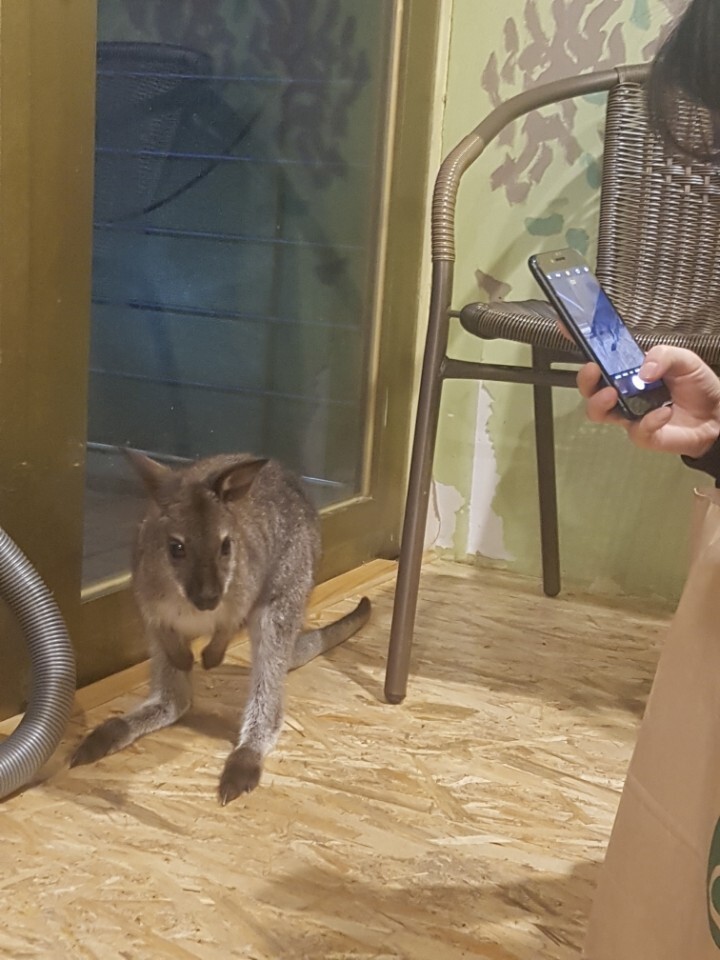
The place was an animal cafe in downtown Seoul on Apr. 27. One of the animals on view was a male joey wallaby, a type of kangaroo. An arctic fox tried to bite the wallaby on the scruff of the neck, forcing a cafe employee to intervene.
“Zoos have to adjust their numbers of animals. We got the wallaby because we know someone at a zoo,” a cafe staff explained.
Inside the cafe, animals like raccoons and civet cats roam freely between the patrons’ feet in a space measuring around 230 square meters. A few of them constantly pace around the room - a suggestion of stereotypy, or repeated patterns of behavior by caged animals due to stress.
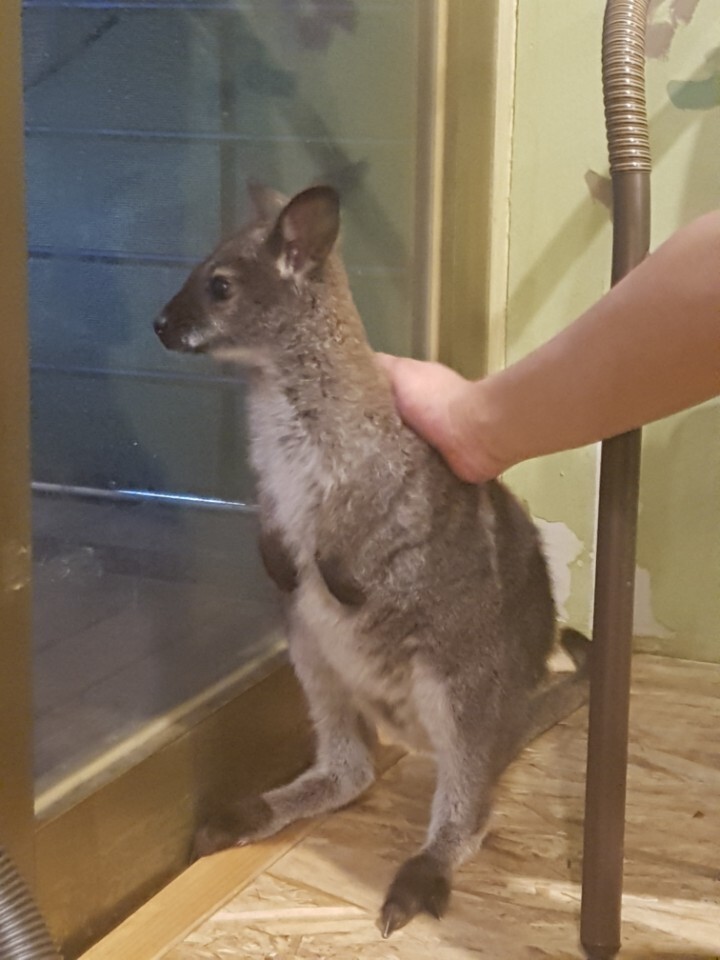
Another animal cafe in central Seoul houses a capybara, the largest of the rodents.
“We brought the capybara in about a month ago from a zoo in the provinces after paying a fee for it,” a cafe staff said. Also visible were three raccoons.
Animal cafes, where patrons can pet animals or take pictures and drink tea with them, are a growing presence in South Korea. The establishments are more or less equivalent to petting zoos in their operation - but exist in a legal blind spot where they are not subject to animal industry laws. An amended to the Animal Protection Act scheduled to go into effect in Mar. 2018 requires legal staffing and facility standards to be met for establishments showing six kinds of animals: dogs, cats, rabbits, guinea pigs, hamsters, and ferrets. But the law does not extend to the display of other wild animals such as wallabies or raccoons.
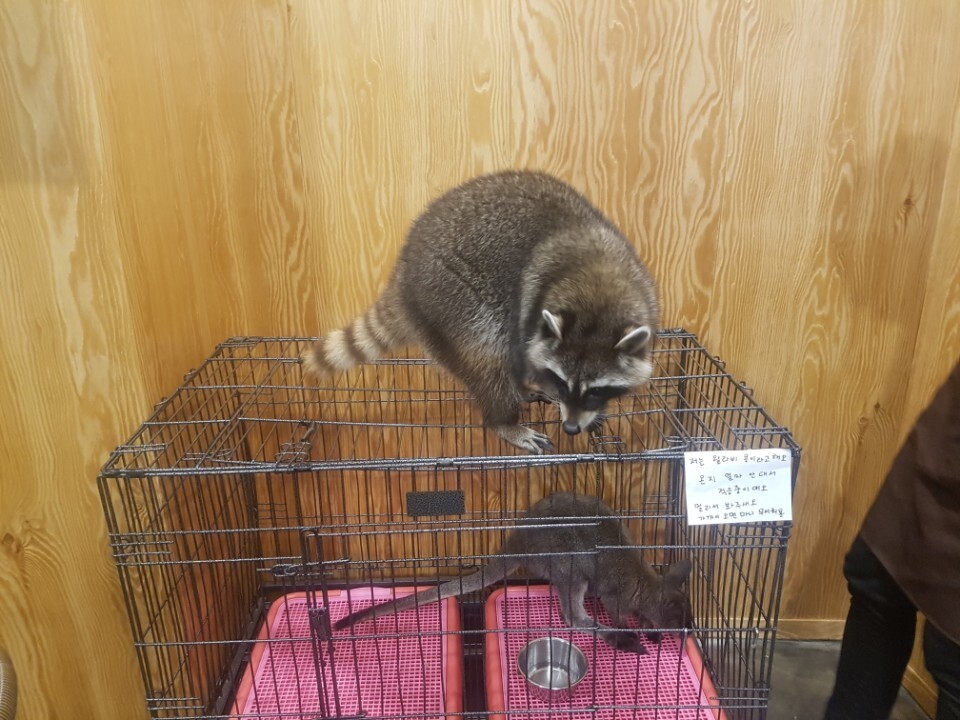
The cafes are also able to sidestep provisions of the Act on Management of Zoos and Aquariums, including requirements regarding the provision of suitable habitats and record-keeping when animals are brought in or taken out. Most fail to meet the act’s standard of at least 50 animals of 10 different kinds. The buying and selling of wallabies, Arctic foxes, sheep, capybaras, and meerkats is not illegal either. As long as the animal is not an endangered species subject to bans on international trading or a Natural Monument according to domestic law, it is not subject to the terms of the Wildlife Protection and Management Act.
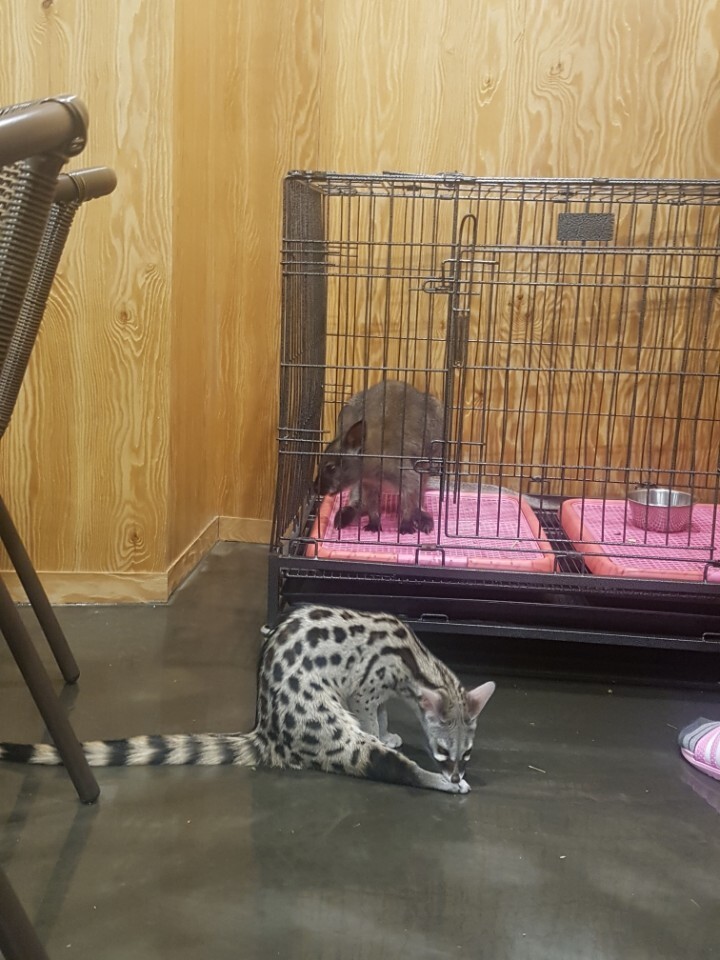
As registered “recreation and eating establishments,” the management standards applied to animal cafes are those of food hygiene-related laws.
“As long as you take care of hygiene issues by making sure the animals don’t go into the kitchen, you’re fine,” said a source at a public health center in Seoul.
To be sure, many cafe managers take pains in caring for their animals. But many problems also exist with animal welfare and patron safety. Animals are exposed to bright lighting until the establishments close late at night. They are also constantly fed. Attacks by fanged animals against other animals or humans are another threat. One cafe wall bore only a message reading, “The cafe takes no responsibility for injuries.”
Animal cafe proprietors argued that they do adjust the amount of food, and that exposure to bright light is not a problem because “these were animals raised at home.”
“The ‘we do not take responsibility’ message was written to urge customers not to be careless about touching the animals,” one explained.
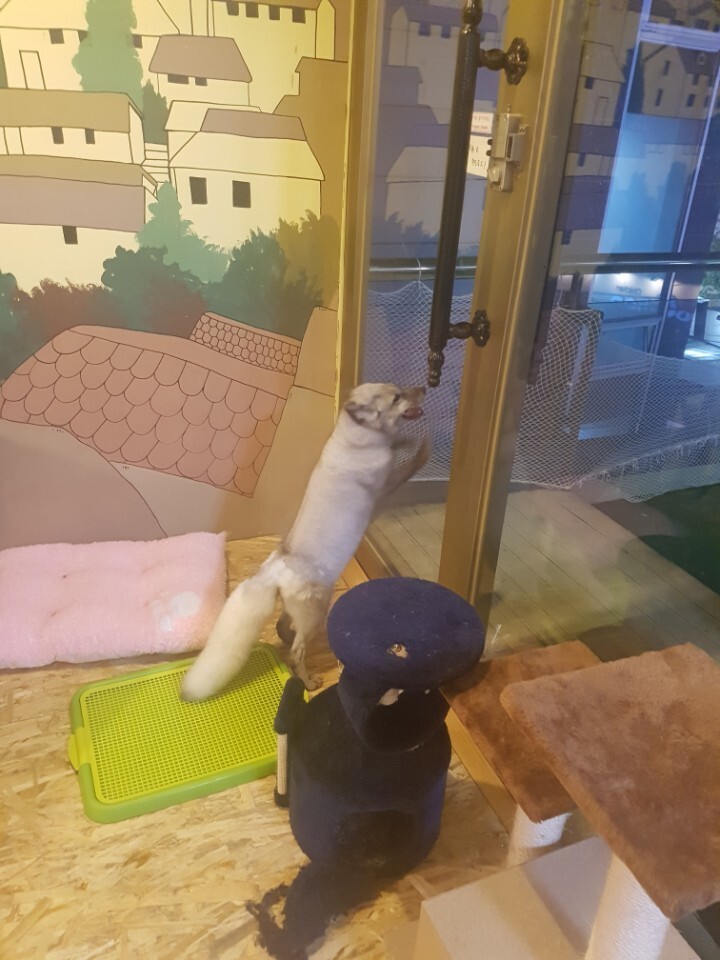
Action for Animals representative Jeon Chae-eun said the animals cafes are “just another form of indoor zoo, but without any regulatory safeguards.”
Korean Animal Welfare Association representative Cho Hee-kyung said, “We should be concerned about ecosystem disruption and the potential for zoonotic diseases.”
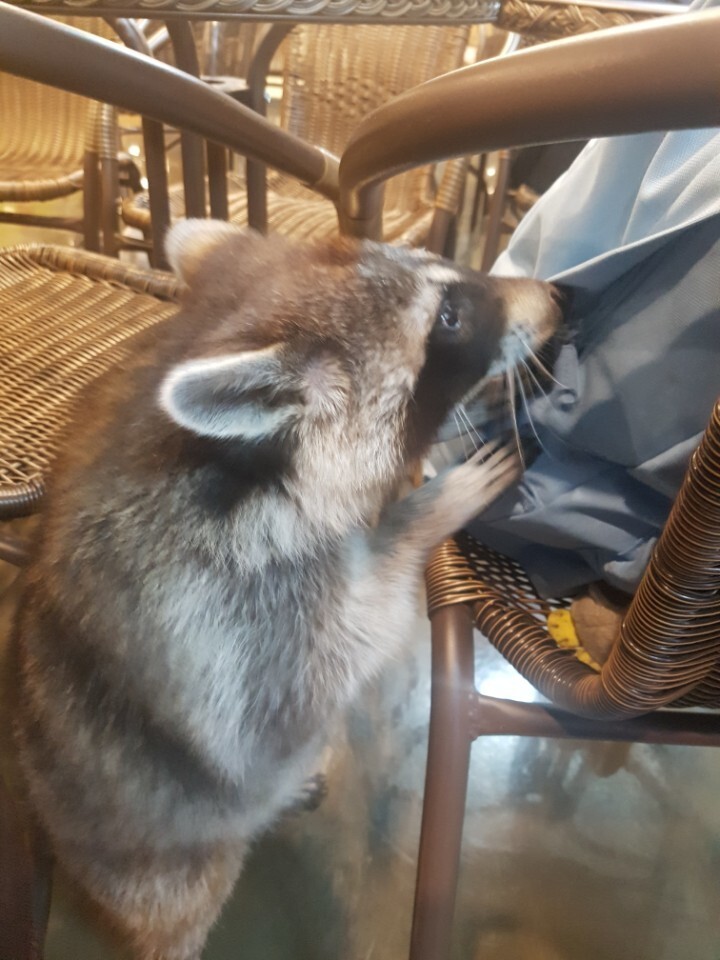
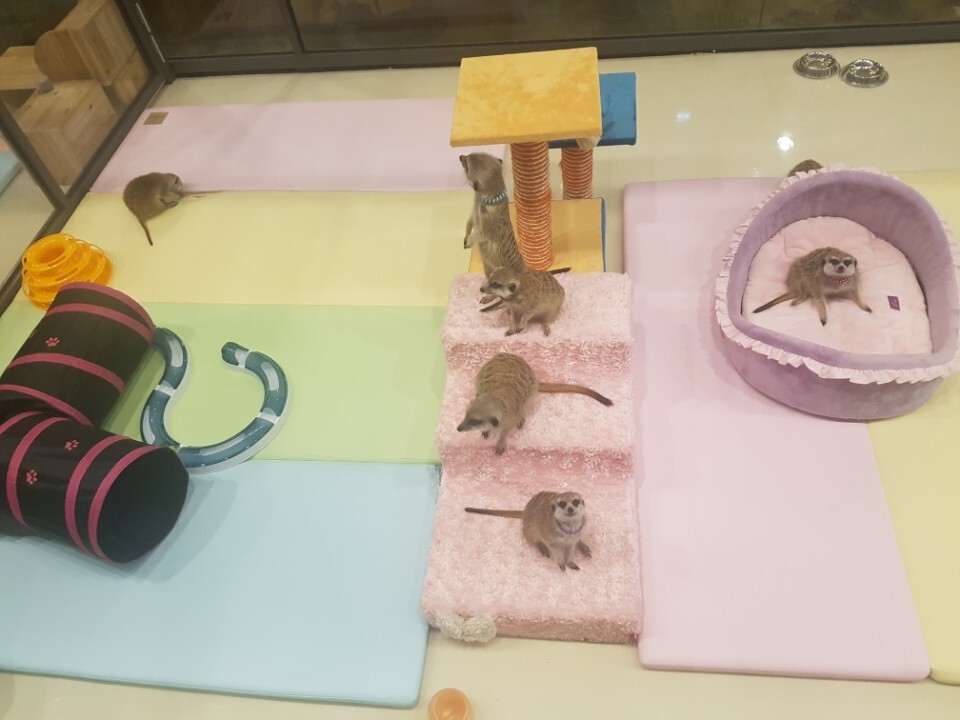
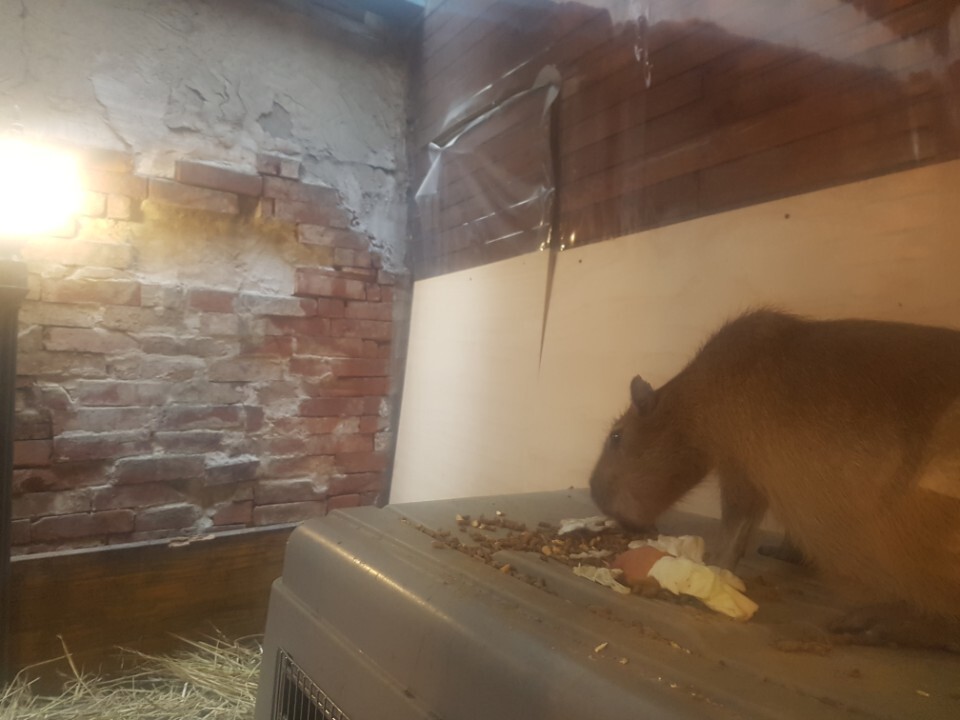
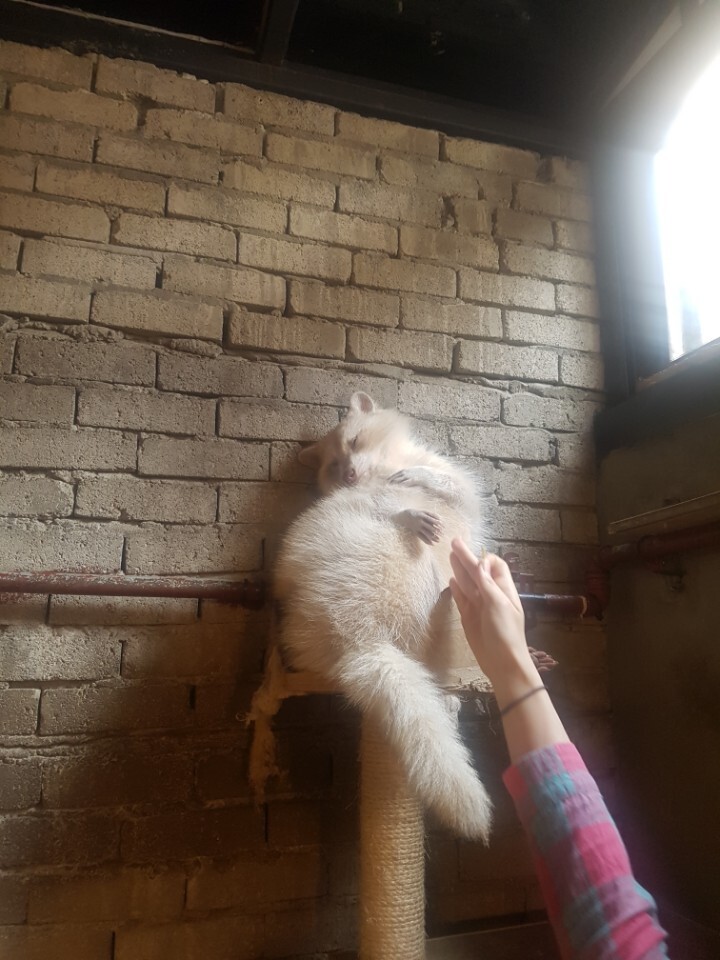
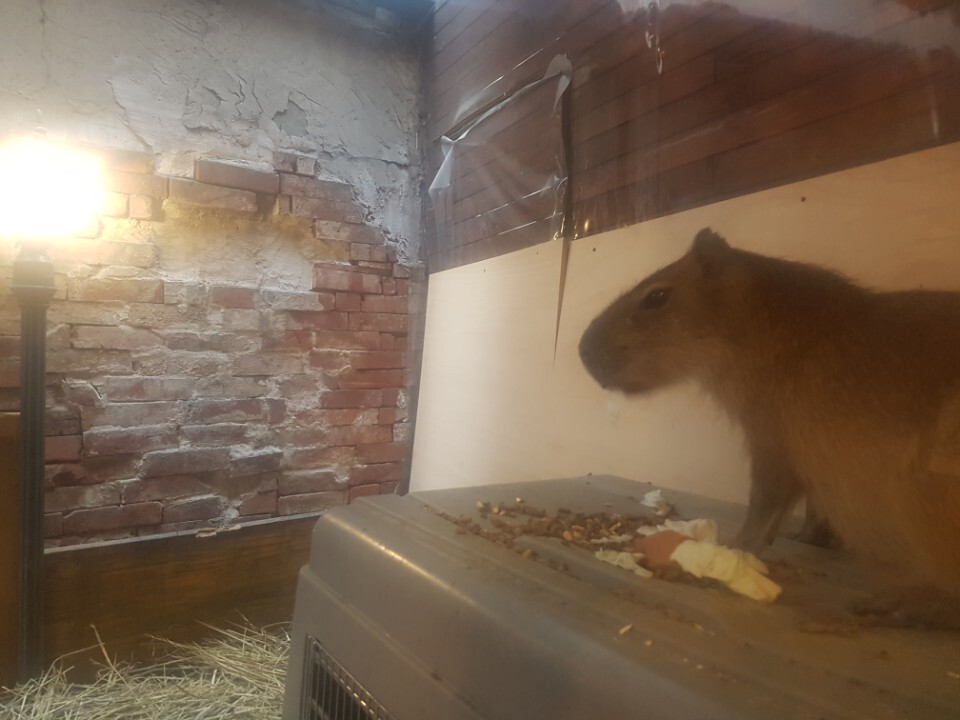
By Choi Woo-ri, staff reporter
Please direct questions or comments to [english@hani.co.kr]

Editorial・opinion
![[Editorial] Intensifying US-China rivalry means Seoul must address uncertainty with Beijing sooner than later [Editorial] Intensifying US-China rivalry means Seoul must address uncertainty with Beijing sooner than later](https://flexible.img.hani.co.kr/flexible/normal/500/300/imgdb/original/2024/0517/8117159322045222.jpg) [Editorial] Intensifying US-China rivalry means Seoul must address uncertainty with Beijing sooner than later
[Editorial] Intensifying US-China rivalry means Seoul must address uncertainty with Beijing sooner than later![[Column] When ‘fairness’ means hate and violence [Column] When ‘fairness’ means hate and violence](https://flexible.img.hani.co.kr/flexible/normal/500/300/imgdb/original/2024/0516/7417158465908824.jpg) [Column] When ‘fairness’ means hate and violence
[Column] When ‘fairness’ means hate and violence- [Editorial] Yoon must stop abusing authority to shield himself from investigation
- [Column] US troop withdrawal from Korea could be the Acheson Line all over
- [Column] How to win back readers who’ve turned to YouTube for news
- [Column] Welcome to the president’s pity party
- [Editorial] Korea must respond firmly to Japan’s attempt to usurp Line
- [Editorial] Transfers of prosecutors investigating Korea’s first lady send chilling message
- [Column] Will Seoul’s ties with Moscow really recover on their own?
- [Column] Samsung’s ‘lost decade’ and Lee Jae-yong’s mismatched chopsticks
Most viewed articles
- 1[Editorial] Transfers of prosecutors investigating Korea’s first lady send chilling message
- 2Xi, Putin ‘oppose acts of military intimidation’ against N. Korea by US in joint statement
- 3[Editorial] Intensifying US-China rivalry means Seoul must address uncertainty with Beijing sooner t
- 4[Exclusive] Unearthed memo suggests Gwangju Uprising missing may have been cremated
- 5‘Shot, stabbed, piled on a truck’: Mystery of missing dead at Gwangju Prison
- 6[Column] US troop withdrawal from Korea could be the Acheson Line all over
- 7China, Russia put foot down on US moves in Asia, ratchet up solidarity with N. Korea
- 8Putin’s trip to China comes amid 63% increase in bilateral trade under US-led sanctions
- 9China calls US tariffs ‘madness,’ warns of full-on trade conflict
- 10[Column] When ‘fairness’ means hate and violence